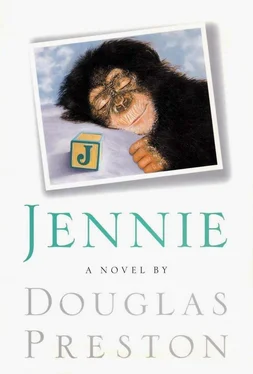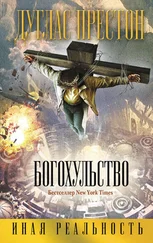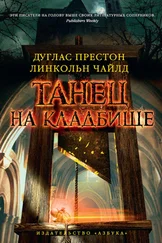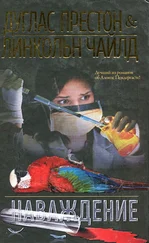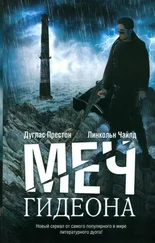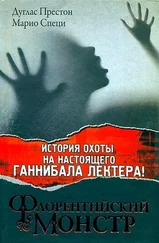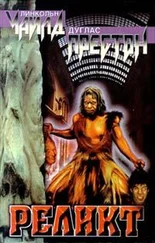As I thought about the events of the morning, I knew that my excellent relationship with Kwele had suffered possibly irreversible damage. I had allowed him to lose face in front of strangers, bush men of no status. Some repair work was in order. I opened the flap of my tent and called for Kwele.
The man arrived, after an appropriately insolent interval, and stood in the shade of the flap, his face uncharacteristically inscrutable.
“Kwele, I owe you an apology. Masa feel sorry. Kwele done good work.”
A small quantity of disappointment leaked into Kwele’s face. “Fifty shillings,” he said. “We go pay five, ten shillings, Masa. Hunter man be nekkid bush man.”
“I know,” I said. “You savvay, Masa like dis small beef too much.”
“Na fine ting dis big beef too. Why Masa no want big beef?”
“I know,” I said. “We should have bought it.” It had been a foolish thing not to acquire the female chimpanzee. I had to get one for my research project, and chimpanzees were becoming increasingly rare. I could not shake that look out of my memory.
There was a small silence.
“Kwele, would you mind bringing me some warm milk, please?”
The African spun around on his flat feet and flicked open the tent flap. He was still angry. I would have to think of something to bring him back around.
As I sat at my camp desk, the baby chimpanzee continued to look into my face with slitted eyes, her tiny arms bumping about. She said “oo oo oo” and grasped one of my fingers with both hands, her fingers closing on mine with surprising strength.
I suddenly felt quite strange, flooded with an unexpected surge of fatherly feeling.
I was searching for several species of pongid — chimpanzees, bonobos (pygmy chimpanzees), and gorillas, to be specific — for my major project at the Boston Museum, which was a reclassification of the primates. Because expeditions like this are extremely expensive, I was also collecting certain species of mammals for the Department of Mammalogy and lizards for the Department of Herpetology. The Ornithology Department had asked me to keep an eye out for a rare genus of raptor they were anxious to obtain.
During the next months we crossed the vast Batuti forest on wide forest trails, my camp assistants trailing me with bundles of equipment balanced on their heads. I had found this a much better method of travel than by Jeep, which in the mid-sixties in west Africa was infuriating. Jeeps broke down, sank into swamps, ran out of gas, and had their tires and batteries stolen. There were no spare parts to be had. The rapid population growth had pushed the really rare pongids into the deeper forests that were still largely inaccessible by Jeep anyway.
The news of my coming always seemed to precede me. As soon as we had set up camp, the natives would begin arriving with specimens. The government of the Cameroons had issued me with a permit to collect a specific number of specimens in each genera of the primates. Since the Africans hunted most of these species for food, it was easy (as well as ethical) to collect them. If the natives were going to kill and eat an animal anyway, I felt my efforts would not affect the rapidly dwindling populations of these animals. All I needed for my research was the skull, pelvis, and skin; the natives could still have the “beef.” Certainly, the benefits to science outweighed other considerations.
I made a very wide circuit of the Batuti, planning to arrive back in Lukemba shortly before the monsoon season. A spacious wattle-and-daub house, built in the colonial style, awaited me there, where I could prepare my specimens and renew my acquaintance with the Mololo of Lukemba. The Mololo was the charming and vivacious leader of the area, a man I’d known since my first trip to the Cameroons as a graduate student.
The baby chimpanzee slipped into this life without even a ripple. When we traveled, I carried her high on my back in a baby carrier provided by one of the camp wives. It was woven from pounded and separated vines, and padded with soft, dry bangi grass, which acted as a kind of diaper. I had to carry her close to my head, because she had conceived a fondness for my hair and clutched fistfuls of it with amazing force, as she would have clung to her mother as she climbed through the trees. Otherwise, she was completely helpless and unable to walk.
At first she was terribly distressed when she was separated from me. Her little arms would wave about and her face would screw up into a wrinkled mask of unhappiness while she made an “oo oo oo” distress call. Baby chimpanzees must cling to their mothers while they climb trees and run along the ground, and as a result evolution had given her a shockingly tenacious grip. Where she held on to my neck or shoulders, tiny bruises developed. Sometimes when I put her down, her hands would wave about and find each other in a crushing clasp. Then she would squeak and cry, unable to understand what was gripping her hands so painfully.
I was deeply attached to the lonely life of the forest, the smell of the ika wood burning, the forest cave about me humming and crackling with the electricity of life. I loved especially the long, soft green light of evening, with only the distant flash of gold in the upper canopy indicating the presence of a sunset. During these evenings, I would sit in my camp chair smoking my pipe, with the chimpanzee nestled in my partly unbuttoned shirt, sleeping quietly, or sucking and pulling on my chest hairs. I have never quite been as contented as I was during those four months in the Batuti forest.
I had made peace with Kwele. I had told him that the little chimpanzee was a very rare specimen indeed, for which fifty shillings was an absurdly low price. The poor ignorant bush hunter men had been royally snookered. Kwele was to be congratulated. It was terribly important to keep the specimen alive, I said, and to that end I was putting Kwele in charge of it, with a salary supplement equal to the gravity of his new responsibility.
As I had anticipated, Kwele immediately subcontracted out the work of caring for the chimpanzee to two of the camp wives, paying them only a fraction of his supplement, and loudly directing every operation with imperious gestures and references to the terrible anger of the Masa should any mistakes be made. The two women took excellent care of the chimpanzee, treating her just like a child, heating her milk, feeding her every four hours. When the chimp began to look peaked they had a discussion and found her a wet nurse — a woman whose own baby had died of diarrhea. The chimp seemed to thrive on human milk, although I could not overcome my astonishment at seeing an animal sucking for all she was worth at a human breast, clamoring and pawing around and raising a racket whenever she felt deprived of the tit.
We supplemented the chimpanzee’s human milk diet with powdered milk. Every morning the squeaking, gurgling chimpanzee sat in my lap and sucked on a bottle.
During my four-month circuit of the Batuti forest, the chimpanzee grew fast. Faster, it seemed to me, than my son, Sandy, had when a baby. Her skin remained white (white skin is not uncommon among lowland chimps) but the hair thickened and shortened, and the face grew rounder and more appealing every day. The eyes, which started off blue, began to darken into blue-black. She learned to grab, and while she suckled on the bottle one hand would wave about and finally snag my button or a wrinkle in my shirt — which she would yank.
She walked for the first time just before we reached Lukemba. She was about four months old. The forest had begun to darken every afternoon, the sky filling with unseen clouds. Sometimes a wind shook the upper canopy and distant thunder rolled through the muffling trees, bringing with it a whiff of humidity and ozone.
Читать дальше
